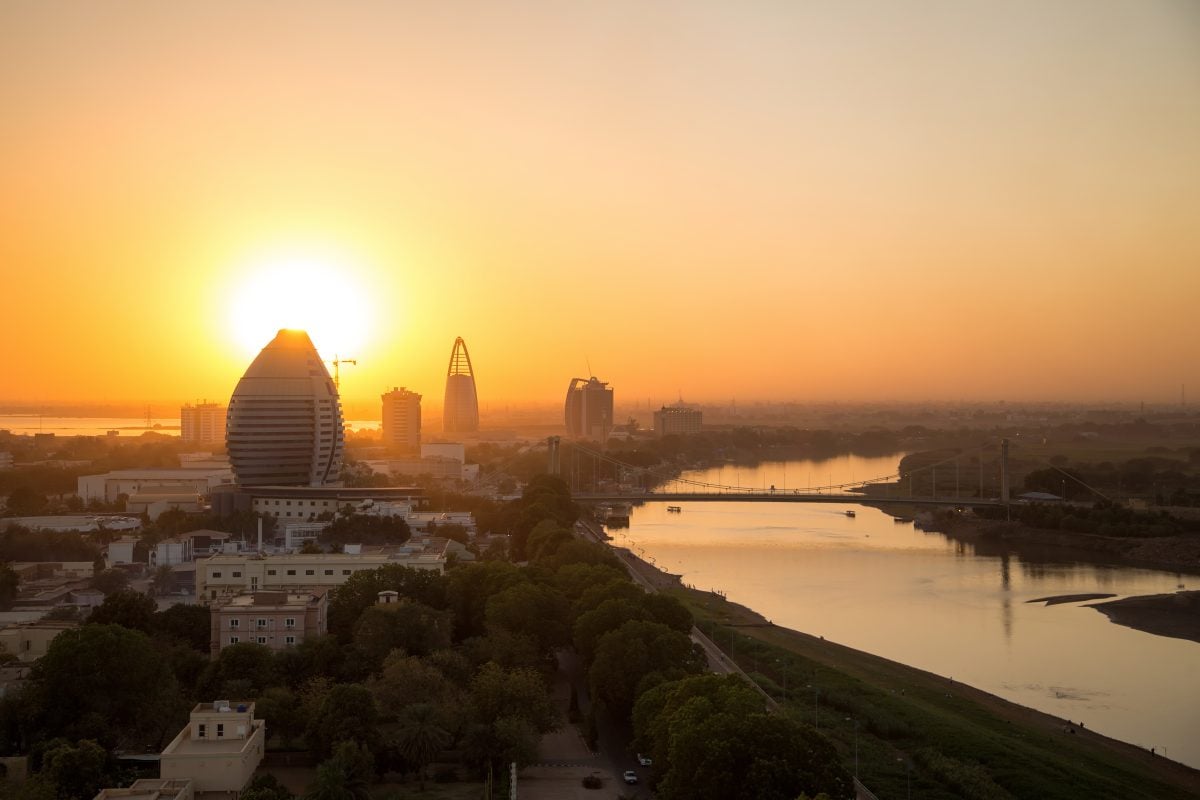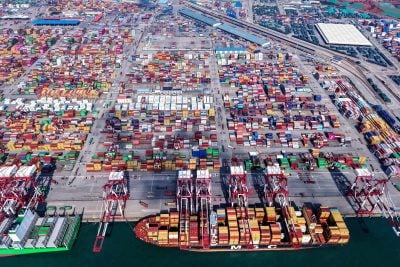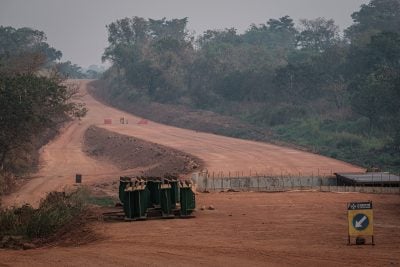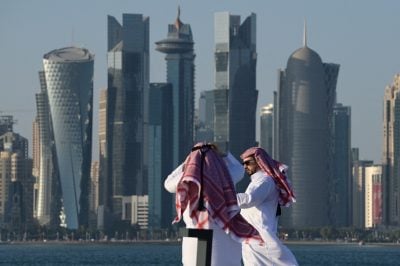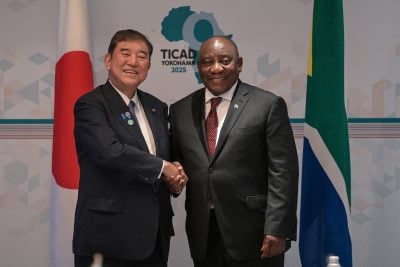For almost three decades, Sudan was constrained by economic sanctions that severely restricted its transactions with the wider world, adding to a long list of economic problems that included corruption, authoritarianism and conflict.
In October, outgoing US President Donald Trump announced that he would remove Sudan from the state sponsors of terrorism list (SST) – the country was placed on the list in 1993 under the former Islamist regime – after the transitional civilian-military government in Khartoum agreed to pay $335m to the victims of the 1998 bomb attacks against US embassies in Tanzania and Kenya and normalise relations with Israel.
The removal, which must still pass the final hurdle of approval by the US Congress, was heralded as a key step in getting Sudan back on the right path, as it allows global banks and international financial institutions (IFIs) to interact with the country. But while it is likely to lead to an IMF programme, attract foreign direct investment (FDI) and open possibilities for the private sector, Sudan’s removal from the list is not a silver bullet for the battered economy.
“There is the fallacy that there will be a positive bounce for the economy. I think it is very unlikely,” says Jonas Horner, Crisis Group’s senior analyst for Sudan. “The 2017 removal of sanctions is indicative. People were expecting a boon, a windfall – but none of that ever happened.”
In fact, the first set of removals – which included the lifting of a 20-year-old trade embargo – only served to heap pressure on Sudan’s brutal dictator Omar al-Bashir, who could no longer blame economic failures on punitive measures imposed by the West. He was overthrown in 2019 after widespread protests.
Two steps forward
There is some hope that foreign entities – other than its traditional Gulf partners – will take a serious interest in Sudan.
KFC, owned by US-based Yum! Brands, opened its first restaurant in Khartoum last December, while US software firm Oracle signed a deal with Sudan’s Nile Bank in 2019 and US construction giant General Electric (GE) signed a memorandum of understanding (MoU) with the government in October to boost the country’s power generation.
Sectors that might attract corporate interest include agriculture, technology, mining and fast-moving consumer goods, according to experts. But the challenging macroeconomic environment remains a serious impediment.
“There are many shareholders who wouldn’t allow companies to operate in Sudan whereas now, in principle, you can do business with Sudan,” the CEO of a mid-size Sudanese company tells African Business, on condition of anonymity.
“But then comes the question of would you want to business with Sudan, and this is related to the macroeconomic environment. It is related to the rule of law and the political stability of Sudan. There will be a partial relief for the private sector, definitely some FDI, but I would say that it will still be limited.”
The CEO expects Gulf countries and Egypt to step up investments, while Europe and the US will be “second movers”. It is still unclear how the new administration views China, a big partner during the Bashir era, and vice-versa.
Though Sudan has normalised ties with Israel, which was a pre-condition for its removal from the SST list, the move is not expected to lead to concrete business deals while a large section of the population disagrees with the government’s decision.
Indeed, there is still discontent about the way the economy is being run and the path Sudan is taking. With rocketing inflation, queues for fuel and bread and a shortage of hard currency, protestors took to the streets in October to condemn the government’s performance.
While international observers see prime minister Abdalla Hamdok as a positive force in Sudan’s political trajectory, critics claim his government is divided and ineffectual. Some blame the unruly coalition of Bashir-opposition groups, the Forces of Freedom and Change, that makes up the civilian element of Sudan’s transitional government, in tandem with the military council. It is made up of various ideological groups including communists, feminists, revolutionary parties and professional associations.
“It is a whole mess,” says the Khartoum-based executive, blaming left-wing parties for undermining normalisation with Israel and economic reforms like lifting fuel subsidies. He adds that ideological parties have forced underqualified members into key ministerial positions, impeding government functions.
The military – with close ties to the UAE, which is leading Arab efforts to engage with Israel, and Saudi Arabia – are less ideological and have been less obstructive to the government’s economic plans, experts say. That is because they were handed large swathes of the economy in return for their political loyalty to Omar al-Bashir.
“The military have every incentive to drive the economy forward because they are such big players in the economy,” says Crisis Group’s Horner.
Shake-up for vested interests
However, the military companies and the sector monopolies that were enriched during Bashir’s reign may face problems now that Sudan’s private sector has been opened to the world.
Sudan’s economy is made up of numerous bloated and inefficient family-owned conglomerates, that had no need to be dynamic in a closed economy and often relied on patronage for business. If Sudan begins to welcome new companies and investment, then the Bashir-era businesses will likely struggle to compete in the free market.
Yet for those who did not benefit from the closed-market economy of the last 30 years, there are significant advantages. Sudanese businesses can now import technology and machinery from any supplier around the world, something that was not possible while the country remained on the terrorism list.
“There were certain markets and certain companies that I was not able to import directly from, for example, in the United States,” says the Sudanese executive. Most businesses and individuals in Sudan will have to go through an intermediary bank, often in the Gulf, to buy and sell goods and services. This pushes up the price for imports and creates huge inefficiencies in the value chain.
The complete removal of sanctions will also likely cause the end of the lucrative informal money transfer services used by the diaspora to send money back to Sudan while bank transfer services like Western Union had been impossible.
According to a recent study by the United Nations Development Programme, members of the Sudanese diaspora send around $3bn in remittances back to their home country every year.
The money, which is mostly sent through informal brokers, could be used to strengthen Sudan’s banking system and boost investment in the country if it were sent through official channels, says Ahmed Elmurtada, managing partner at one of Sudan’s only tech-incubators, 249Startups.
Will Biden be positive for Sudan?
As the removal from the terrorism list must still pass through the US Congress before it takes effect, there is some apprehension around what President-elect Joe Biden might mean for Sudan’s transition to democracy.
Many in Sudan have withheld celebrations as “the US has moved the goalposts in the past”, says Crisis Group’s Horner. However, Biden’s administration is expected to take “greater interest in Sudan as an emerging transition in a super-tough neighbourhood” and there are not expected to be any upsets in removing the sanctions.
“The important thing to note is that Sudan’s transition is very doable but international organisations and countries have seen it as something to be skirted or avoided,” says Horner. “I would suggest that Sudan needs their input financially and diplomatically, so there might be a much more magnanimous engagement from a Biden administration.”
Want to continue reading? Subscribe today.
You've read all your free articles for this month! Subscribe now to enjoy full access to our content.
Digital Monthly
£8.00 / month
Receive full unlimited access to our articles, opinions, podcasts and more.
Digital Yearly
£70.00 / year
Our best value offer - save £26 and gain access to all of our digital content for an entire year!

 Sign in with Google
Sign in with Google 